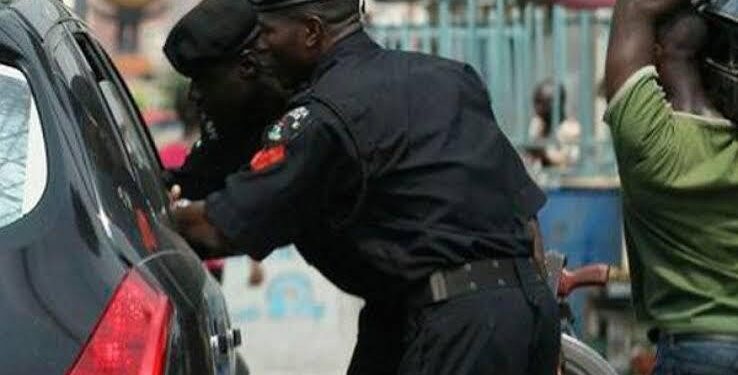Stakeholders in Abia and Imo have continued to react differently to the recent order by the Police authorities for the enforcement of the mandatory third-party motor insurance policy among motorists.
While some embraced the order, others kicked against it because the enforcement should be the prerogative of the Federal Road Safety Corps rather than the police.
A cross-section of the people who spoke in a survey in the two states of the South-East over the weekend hoped the police would not abuse the enforcement of the policy.
The police began enforcing the policy on February 1, following a directive by IGP Kayode Egbetokun.
In Umuahia, a legal practitioner, Comfort Orji, expressed support for the policy enforcement, adding that the measure aimed to protect lives and property.
Mr Orji said the Nigeria Police Act (2020) supports the implementation of the policy by the police. She also said Section 4 of the act granted the police the authority to arrest individuals for specific reasons and enforce various laws and regulations, including traffic regulations.
She further said that Section 68 of the Insurance Act and Section 312 of the 1945 Motor Vehicle (Third Party Insurance) Act made using third-party motor insurance mandatory for vehicle owners.
According to her, maintaining law and order is part of the police mandate, which typically includes checking driver’s licences, vehicle registrations, insurance certificates, and proof of ownership during routine checks.
Another legal practitioner, Faith Osaroghene, argued that the Police Act “did not explicitly list the inspection of vehicle documents as part of the duties of the police.”
She clarified that under the Road Traffic Act, they were legally permitted to “conduct vehicle stop and check”, especially for security reasons. Ms Osaroghene said that although the roles of the FRSC and Police were clearly defined on paper, there was frequent overlap in practice, leading to confusion among motorists.
Meanwhile, some commercial vehicle drivers, including Alozie Eguzo and Chibuzo Ogbonna, acknowledged the importance of the insurance policy. They described the enforcement as a welcome development due to its numerous benefits.
However, they admitted that they had not yet renewed their insurance certificates for the year and that no law enforcement agent had stopped them for checks.
They appealed to the IGP to ensure that the enforcement of the policy is done with decorum rather than serve as “a tool for extortion.”
An Aba-based legal practitioner, John Agbo, said third-party insurance is important “because it guards against emergencies through compensation” against losses.
If well enforced, Mr Agbo said the insurance policy would yield good results for the road users and the government.
Meanwhile, the police command in Abia said it has started enforcing the policy across the state. Its spokeswoman, Maureen Chinaka, said the command commenced the enforcement on February 3.
Ms Chinaka explained that police commissioner Danladi Isa, his management team, and traffic officers went to the highway to begin the enforcement on Monday.
The cop said some motorists were unaware they had third-party insurance. She urged all vehicle owners in the state to obtain valid third-party insurance to avoid legal consequences.
In Imo, police personnel have also commenced the enforcement in the state in full swing. The spokesman for the Imo command, Henry Okoye, rated the compliance level in the state at about 70 per cent.
Mr Okoye said that the command commenced the policy enforcement on February 1 as directed by the IGP, disclosing that several vehicles had been impounded. He said the few impounded vehicles were later released to their owners after securing the necessary insurance documents.
The South-East zonal chairman of the Chartered Institute of Taxation of Nigeria, Ubaka Nweke, said the demand for third-party insurance documents was still low at revenue offices across the zone.
He said the required fee for third-party insurance is N15,000 for private salon cars, N20,000 for buses and N25,000 for trucks.
A commercial bus driver with Ekwulobia Urban Mass Transit, Tobias Igbokwe, said the company’s rule mandated each driver to obtain a valid third-party insurance policy.
However, Mr Igbokwe lamented that the insurance companies defaulted on compensating drivers.
Some motorists claimed not to know the new insurance policy directive.
Another motorist, Ugochukwu Azubuike, urged the IGP to sensitise the public and motorists to the directive. A legal practitioner, Wilson Ubah, said the onus of implementation should fall on insurance companies, who have been mandated to carry out the exercise.
A senior officer of FRSC, Udo Ukoh, expressed hope that “with the progress of time, many persons will understand better and there will be proper implementation.”
(NAN)






